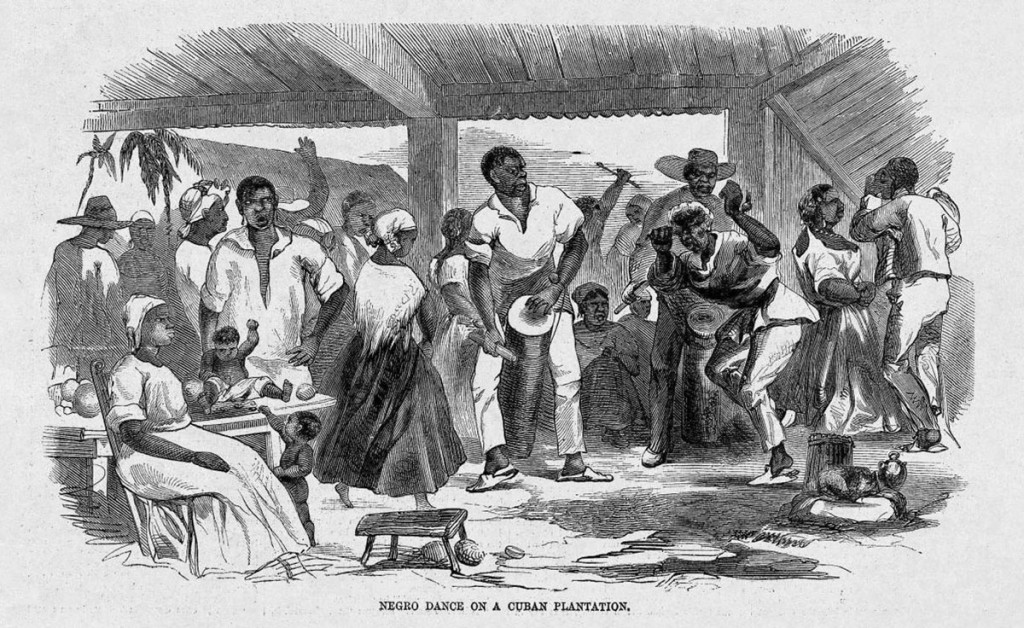 Sen. Ted Cruz is an elitist Cuban-American, representative of Cuban plantation owners who imported and exploited African slaves for generations. A lesson plan from PBS’ Black in Latin America feature shows that by persecuting Haitians the Dominican Republic is simply following Cuba’s tradition of persecuting dark-skinned workers once the workers have been exploited to breaking point. This is the Cuban history:
Sen. Ted Cruz is an elitist Cuban-American, representative of Cuban plantation owners who imported and exploited African slaves for generations. A lesson plan from PBS’ Black in Latin America feature shows that by persecuting Haitians the Dominican Republic is simply following Cuba’s tradition of persecuting dark-skinned workers once the workers have been exploited to breaking point. This is the Cuban history:
When revolution broke out in the French colony of Saint Domingue (later known as Haiti), sugar production there came to a virtual halt. This caused a sudden demand for sugar. Cuban plantation owners quickly stepped in to fill the gap created by neighboring Haiti, placing Cubans in a position to profit immensely. By the mid-1800’s, Cuba replaced Haiti as the world’s leading producer of sugar, making Cuban plantation owners very wealthy. Sugar is a very labor intensive and the increased pressure to fill market demand for this lucrative crop resulted in a high death rate among slaves. Plantation owners responded to the labor shortage by purchasing more slaves thereby reinvigorating the Transatlantic slave trade even after the British sought to curtail it.
Many whites in Cuba feared that blacks there would rise up against whites and take over the island just as in Haiti during its slave insurrection and then successful revolution. White plantation owners feared both loss of privilege, property, economic gain as well as violence from blacks who might seek to avenge their enslavement and inhumane treatment. Not unique to Cuba, this was a common fear among the ruling establishment in many colonial societies.
In the Dominican Republic, dark-skinned Haitians have also been exploited and have similarly been forced into slave-like work and living conditions:
Large-scale sugar production began in the Dominican Republic in the 1870s. In many ways, little about the process has changed since then: The sugar cane still grows tall, wild, and sweet, and Haitian laborers – poor, desperate, and hungry – still work day in, day out, to cut it.
The Haitian workers, then as now, typically live in bateyes – company towns located within the sugar plantations. Some have electricity. Most lack running water. There are no phones, no playgrounds, and no mattresses on many of the rickety beds. The workers earn, typically, the equivalent of $2.50 a day, out of which they often must pay a percentage for company social security and pension funds – money, they say, they never see again.

Where do I start to answer your simplistic and racist post. First of all you say that the arrival of well educated Cubans “usurped” political power and academic jobs from Mexican- Americans. Really? Do you think so poorly of Mexican-Americans. Why must we begrudge the success of certain ethnic groups when we are ALL under attack . You fail to insult me by calling me a gusano. The name comes from the duffle bag that was the only thing you were allowed to leave Cuba withqqqq
Prudencio, please bear in mind that you are answering MariaElena’s comment, and not my post.
Mil gracias, Kimi ! For distinguishing the privileged white Republican Cuban-American Ted Cruz from the majority of the Latino population who come from a Mexican (Mestizo) heritage like myself. Ted Cruz’ privileged pro-big-corporate outlook comes directly from his slave-owning ancestors and from the existing capitalist system in the U.S. that can no longer serve the needs of the “American” people. After the pro-socialist revolution in Cuba in Jan 1959, many privileged elitists left Cuba. These privileged “Cubanos gusanos” (Cuban worms) then usurped political leadership and academic jobs from Mexicans-Americans in the U.S. Most Mexicans came (and continue to come) from a working-class background as distinguished from the Cuban exiles. Young Mexican-Americans expressed a strong anti-colonialist outlook when they spoke truth to power by means of the “Chicano Power Movement” that rose up in the 60’s and 70’s. Thank you for putting this so-called American patriot’s, Ted Cruz’, history— both personal and economic class history— into perspective. Like the TV fictional detective of the 1950’s used to say: “Just the facts, Ma’m, just the facts.” … and that’s what you give in this blog… just the facts ! So glad to meet you, Kimi, this week! Signing off with what the late Great “CHE” Cuban-Argentinian revolutionary used to say “Hasta la victoria siempre :)” In “it,” the struggle, until we win it !—— MariaElena Castellanos, contributing writer and distributor of: and the bilingual human rights and movement paper: My email: castellanoslaw1@gmail.com… have you sent me that 500 word article about your urban-garden and youth activities that you were thinking of submitting to the People’s Tribune? Please do.